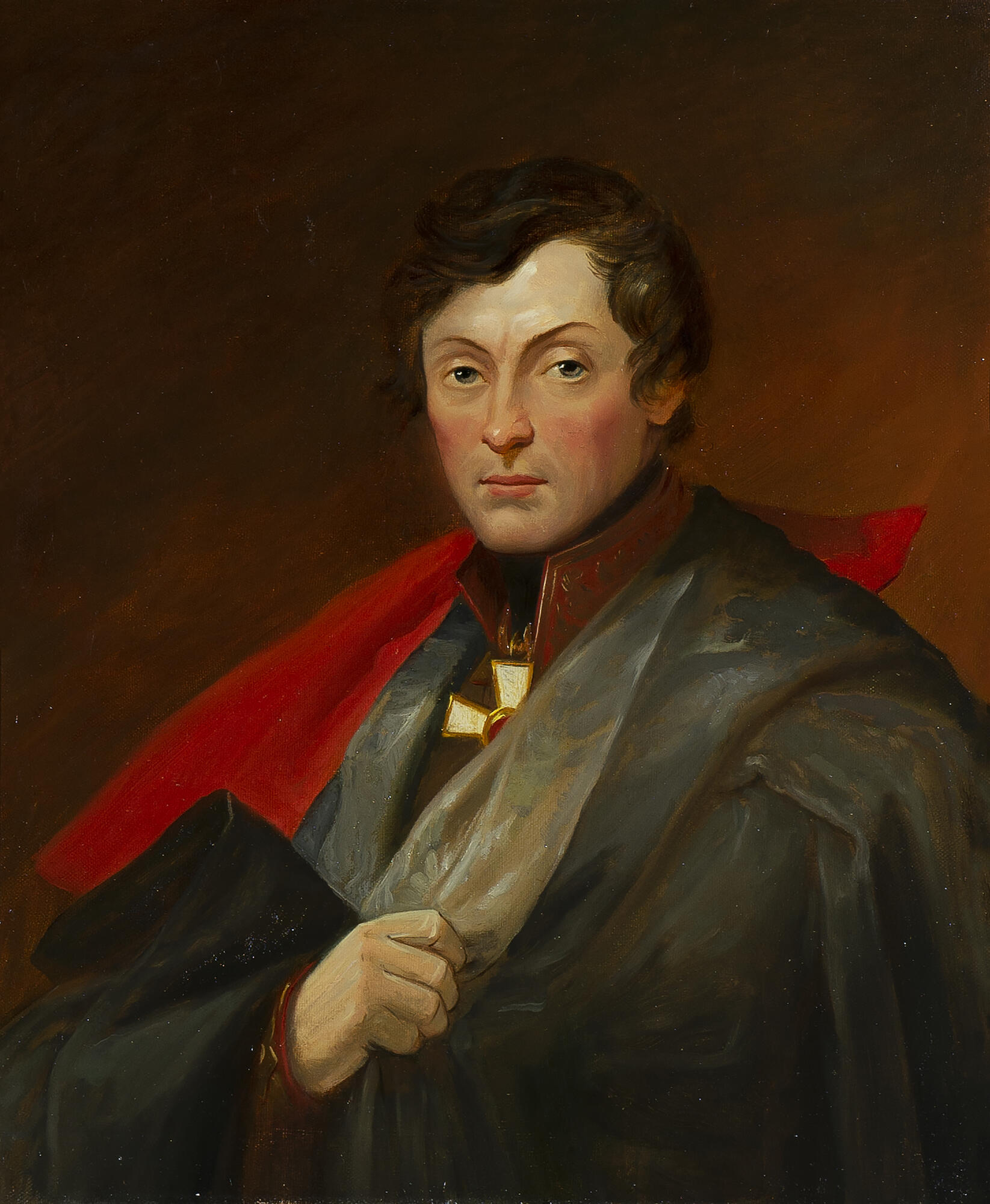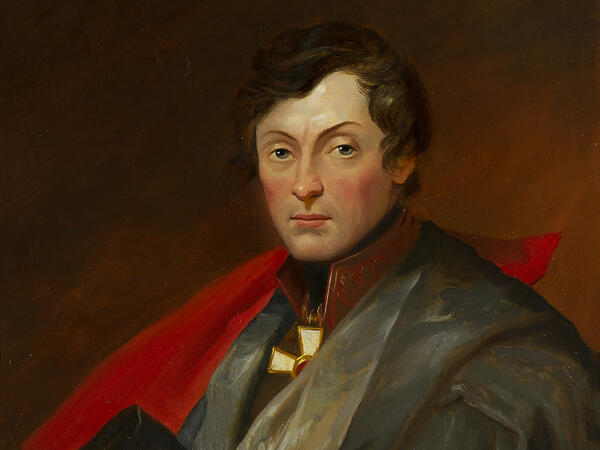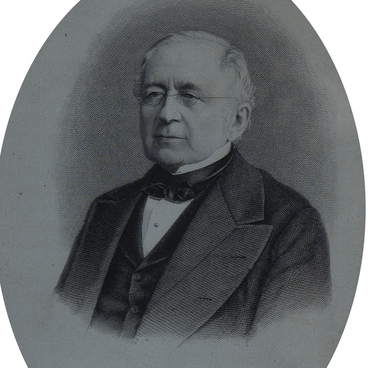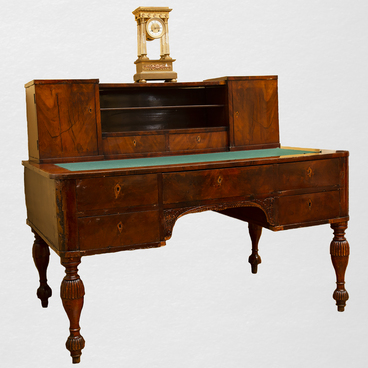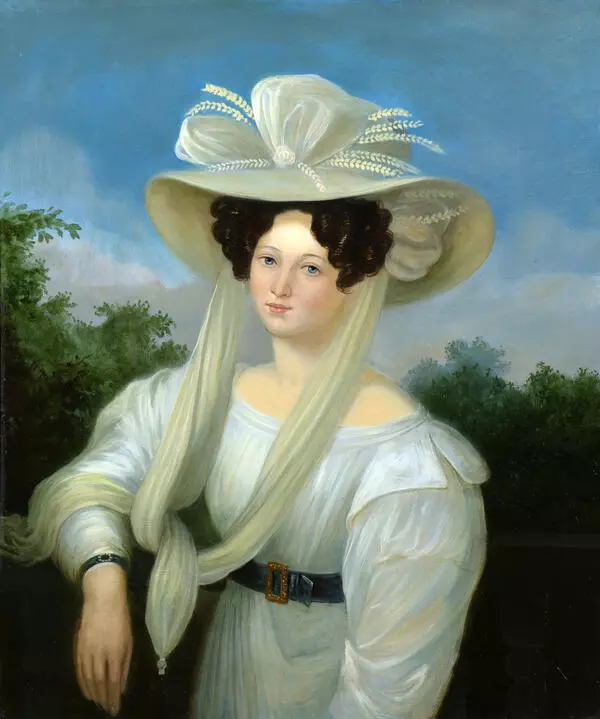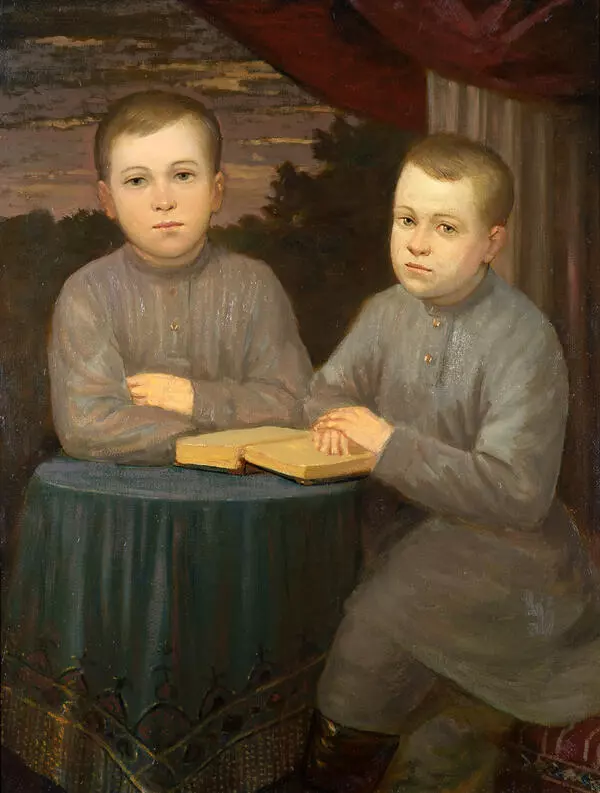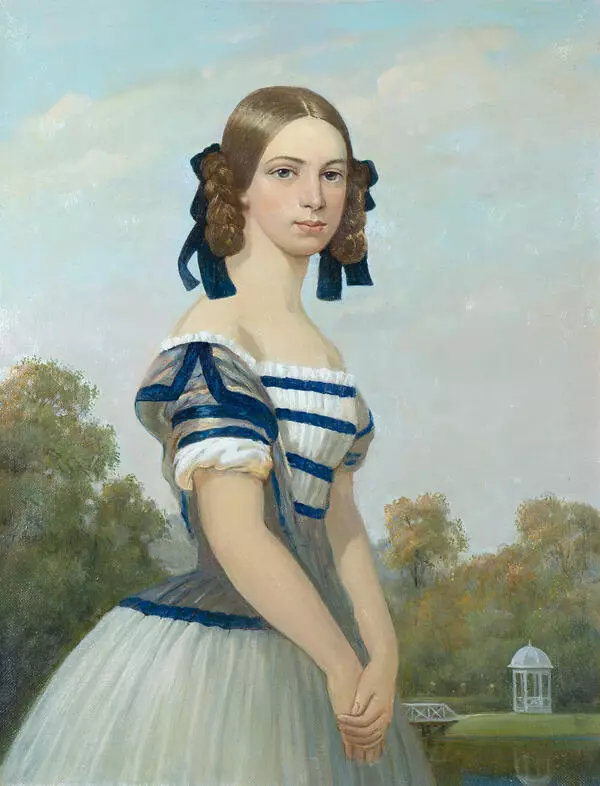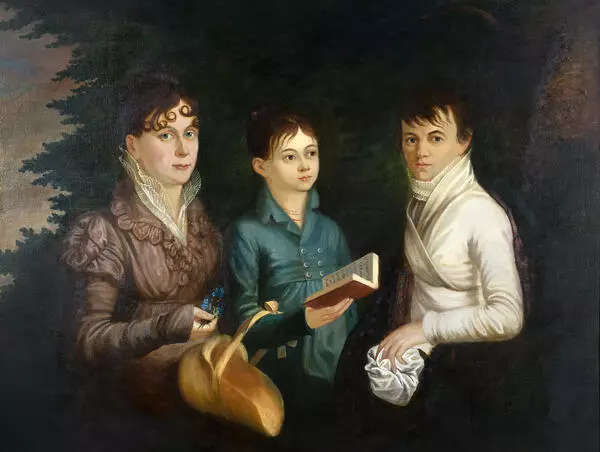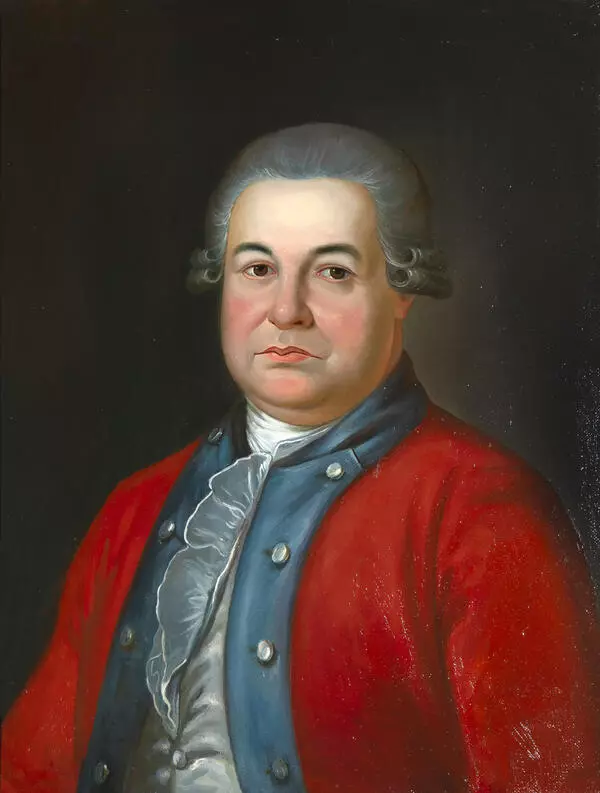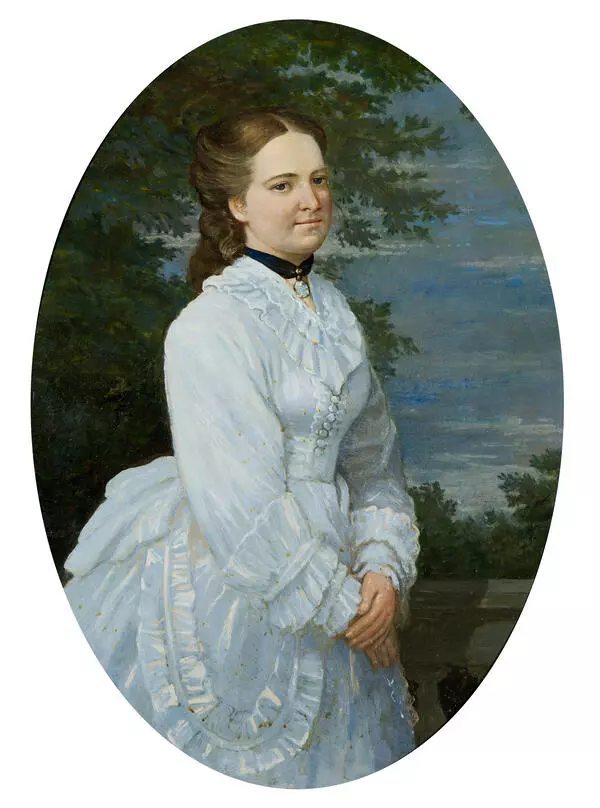The portrait depicts Count Alexander Osterman-Tolstoy, a hero of the Patriotic War of 1812 and a relative of the poet Fyodor Tyutchev. He is portrayed as a brave, restrained and spiritually gifted man. He wears a general’s overcoat on top of the count’s uniform, hiding a hand injury that he had received during one of the battles. Only one of the general’s many awards can be seen near the collar — the Cross of St. George of the second degree.
Osterman-Tolstoy came from the ancient Tolstoy dynasty. His father was a Major general, and his mother was the daughter of Count Andrey Osterman, a diplomat and associate of Peter the Great. Osterman-Tolstoy chose a military career, and with the outbreak of Napoleonic wars in 1805 he was in the thick of the fighting. He took part in the Battle of Borodino and was wounded, but after a few days, he was back. In a report presenting a list of generals who distinguished themselves at Borodino, the commander Mikhail Barclay de Tolly wrote about Osterman-Tolstoy, ‘By his example he encouraged the troops subordinate to him so that neither the severe crossfire of the artillery nor the attacks of the enemy cavalry could shake them, and the troops managed to hold their position until the end of the battle.’
Osterman-Tolstoy played an important role in the life of Fyodor Tyutchev. In the winter of 1821, the poet graduated from Moscow University and came to St. Petersburg. The count invited his nephew to stay at his house on the English Embankment. During the suppression of the Decembrist uprising in 1825, Osterman-Tolstoy gave shelter to several officers who were among the rebels. He also arranged Tyutchev’s admittance to the State Collegium of Foreign Affairs — a favor asked by the poet’s mother, Ekaterina Lvovna. The Count’s support ensured that Tyutchev soon became an official employee of the diplomatic mission in Munich.
The poet noticed that the changes in his biography happened because of external events — this is how he understood that he was not the master of his destiny, but, on the contrary, that the circumstances determined the course of his life. In October 1840, he wrote to his parents from Munich,
Osterman-Tolstoy came from the ancient Tolstoy dynasty. His father was a Major general, and his mother was the daughter of Count Andrey Osterman, a diplomat and associate of Peter the Great. Osterman-Tolstoy chose a military career, and with the outbreak of Napoleonic wars in 1805 he was in the thick of the fighting. He took part in the Battle of Borodino and was wounded, but after a few days, he was back. In a report presenting a list of generals who distinguished themselves at Borodino, the commander Mikhail Barclay de Tolly wrote about Osterman-Tolstoy, ‘By his example he encouraged the troops subordinate to him so that neither the severe crossfire of the artillery nor the attacks of the enemy cavalry could shake them, and the troops managed to hold their position until the end of the battle.’
Osterman-Tolstoy played an important role in the life of Fyodor Tyutchev. In the winter of 1821, the poet graduated from Moscow University and came to St. Petersburg. The count invited his nephew to stay at his house on the English Embankment. During the suppression of the Decembrist uprising in 1825, Osterman-Tolstoy gave shelter to several officers who were among the rebels. He also arranged Tyutchev’s admittance to the State Collegium of Foreign Affairs — a favor asked by the poet’s mother, Ekaterina Lvovna. The Count’s support ensured that Tyutchev soon became an official employee of the diplomatic mission in Munich.
The poet noticed that the changes in his biography happened because of external events — this is how he understood that he was not the master of his destiny, but, on the contrary, that the circumstances determined the course of his life. In October 1840, he wrote to his parents from Munich,
